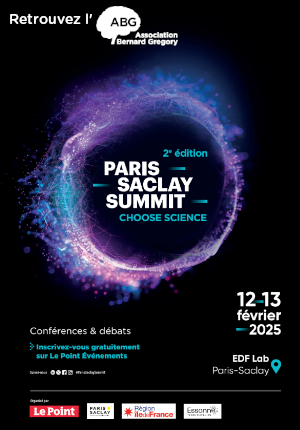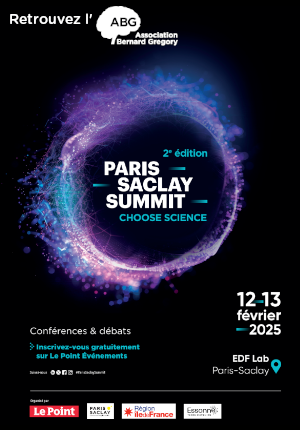PhD student in Cancer Immunology
| ABG-128049 | Thesis topic | |
| 2025-01-21 | Public/private mixed funding |

- Health, human and veterinary medicine
Topic description
The Translational Cancer Immunogenomics (TCI) Research Group, led by Dr. Ángel Álvarez-Prado at the Department of Cancer Research of LIH, is currently offering a Ph.D. student position. Recently established, the research group focuses on understanding how genetic alterations in cancer cells shape the immune microenvironment of brain metastatic tumors, with the long-term goal of developing novel personalized immunotherapies for cancer patients with brain metastasis.
The TCI group works at the interface between immunology and cancer biology and combines the use of preclinical models of cancer and human samples with state-of-the-art technologies to profile the immune microenvironment of brain metastatic tumors upon different therapeutic interventions. We are looking for a highly motivated Ph.D. student to join our lab as part of the CANBIO2 Doctoral Training Unit (DTU). The candidate will join a young, creative and stimulating environment, with direct supervision and mentoring by the Principal Investigator, and opportunities for professional growth and direct involvement in research projects including national and international collaboration partners.
Project: Decoding the impact of genetic variation on anti-tumoral immunity and immunotherapy efficacy in brain metastatic tumors
Brain metastases (BrMs) are the most common brain tumors in adults, often originating from primary lung, breast and melanoma cancers. It is estimated that 20-40% of all cancer patients will develop metastases to the brain. Patients with BrMs present a dismal prognosis and there is an urgent need for more effective treatments. In this regard, the standard of care has been recently expanded to include molecularly targeted therapies and immunotherapies; and the genetic profile of primary tumors is now used to guide personalized treatment decisions for patients with lung- and melanoma-BrMs. While immune checkpoint blockade (ICB) has shown encouraging initial outcomes in these patients, a substantial proportion of BrMs remain unresponsive to ICB. This underscores the intricate and heterogeneous nature of the BrM tumor immune microenvironment (TIME) and emphasizes the need for a better understanding of its role driving pro- or anti-tumoral responses. Previous research from the Principal Investigator has linked the genetic makeup of cancer cells to the abundance and function of immune cells in the microenvironment of human BrMs, suggesting an important role for somatic variation in shaping the TIME. However, the contribution of tumor somatic variation to anti-tumoral immunity remains to be fully understood. Our hypothesis is that genetic variation instructs specific immunophenotypes in the microenvironment of BrM tumors, which in turn shape responses to therapy. Therefore, this project aims to: (i) evaluate the efficacy of radio- and ICB therapy in preclinical mouse models of lung- and melanoma-BrM bearing different genetic makeups; (ii) characterize the TIME in treated and untreated tumors from these models; (iii) explore the link between some genetic variation, TIME phenotypes and responses to therapy in human BrMs.
The successful candidate will join the Translational Cancer Immunogenomics research group as part of the CANBIO2 Doctoral Training Unit (DTU), which is funded by the Fonds National de la Recherche (FNR). In total 19 PhD students are part of the DTU. They investigate different aspects to better understand the dynamic tumor microenvironment and discover potential new therapeutic strategies. The DTU encompasses a wide range of training opportunities including clinical dive events, workshops, and lecture series. In addition, each student participates in a secondment in a collaborator’s laboratory. For further information, please consult the website of the CANBIO2 DTU: CANBIO2 » Luxembourg Institute of Health.
Key Skills, Experience and Qualifications
- B.Sc. and M.Sc. in Biomedical sciences, Immunology or Oncology;
- Hands-on experience in biochemistry, molecular biology, cell culture, flow cytometry and immunofluorescence techniques;
- Experience handling experimental mouse models and Certified training on animal experimentation and welfare corresponding to the requirements defined by the EU Directive 2010/63/EU and the Réglement Grand-Ducal of the 11th January 2013 (FELASA or equivalent) will be a plus;
- Experience on bioinformatic analyses (DNA-Seq, (sc)RNA-Seq, ChIP-Seq) and/or R programming skills will be a plus;
- Skills: Curiosity, rigor, perseverance, creativity, excellent time management and sense of priority, willingness to learn, team player;
- Fluent command of English (written and spoken) is a must.
The starting date can be negotiated but must be before the end of June 2025.
Gender Equality
The LIH is an equal opportunities employer. We are fully committed to removing any discriminatory barrier related to gender, and not only, in recruitment and career progression of our staff. The LIH is attentive to gender representation among its leadership staff and aims to eliminate obstacles to the recruitment and promotion of female leaders and their career development.
In Short
- Contract type : Fixed-term contract (CDD)
- Contract duration : 36 months
- Work hours : 40h/week
- Location : rue Nicolas-Ernest Barblé 6 - 1210 Luxembourg
- Start date : ASAP
- Ref : MC/PhD125/AAP/TCI
Funding category
Funding further details
Presentation of host institution and host laboratory
https://www.lih.lu/en/research-scope/research-department/department-of-cancer-research/translational-cancer-immunogenomics/
Cancer frequently originates from alterations in the book of instructions of a cell, the genome, resulting in uncontrolled proliferation and aberrant cell behavior. Current therapies are in many cases insufficient to completely eradicate cancer cells, which can spread to other organs through a process called metastasis. Metastatic cancer is usually associated with a poor patient prognosis. Novel strategies exploiting the immune system to treat cancer, called immunotherapies, have shown promising results, but not all patients respond equally, likely due to differences in their immune responses.
The Translational Cancer Immunogenomics research group investigates how genomic alterations shape anti-tumoral immunity and how this in turn influences responses to therapy against metastatic cancer. We currently have several projects exploring this question in metastatic brain tumors, since it is estimated that between 20-40% of all cancer patients will develop metastases to the brain. Our lab employs an interdisciplinary strategy to tackle this complex problem, including the use of preclinical mouse models of cancer, multi-omic analyses of patient samples and computational approaches. We are generally interested in understanding the intricate interactions between cancer cells and immune cells in the tumor microenvironment, so that we can manipulate them to foster anti-tumoral responses.
The long-term goal of our research is to capitalise on this knowledge to develop new personalised immunotherapies guided by the genetic makeup of each patient, hopefully leading to more effective treatments against cancer.
Website :
Candidate's profile
- B.Sc. and M.Sc. in Biomedical sciences, Immunology or Oncology;
- Hands-on experience in biochemistry, molecular biology, cell culture, flow cytometry and immunofluorescence techniques;
- Experience handling experimental mouse models and Certified training on animal experimentation and welfare corresponding to the requirements defined by the EU Directive 2010/63/EU and the Réglement Grand-Ducal of the 11th January 2013 (FELASA or equivalent) will be a plus;
- Experience on bioinformatic analyses (DNA-Seq, (sc)RNA-Seq, ChIP-Seq) and/or R programming skills will be a plus;
- Skills: Curiosity, rigor, perseverance, creativity, excellent time management and sense of priority, willingness to learn, team player;
- Fluent command of English (written and spoken) is a must.
Vous avez déjà un compte ?
Nouvel utilisateur ?
Get ABG’s monthly newsletters including news, job offers, grants & fellowships and a selection of relevant events…
Discover our members
 Tecknowmetrix
Tecknowmetrix  Institut Sup'biotech de Paris
Institut Sup'biotech de Paris  Ifremer
Ifremer  MabDesign
MabDesign  ANRT
ANRT  Institut de Radioprotection et de Sureté Nucléaire - IRSN - Siège
Institut de Radioprotection et de Sureté Nucléaire - IRSN - Siège  Nokia Bell Labs France
Nokia Bell Labs France  ADEME
ADEME  Généthon
Généthon  CASDEN
CASDEN  TotalEnergies
TotalEnergies  MabDesign
MabDesign  Laboratoire National de Métrologie et d'Essais - LNE
Laboratoire National de Métrologie et d'Essais - LNE  SUEZ
SUEZ  Aérocentre, Pôle d'excellence régional
Aérocentre, Pôle d'excellence régional  CESI
CESI  PhDOOC
PhDOOC  Groupe AFNOR - Association française de normalisation
Groupe AFNOR - Association française de normalisation  ONERA - The French Aerospace Lab
ONERA - The French Aerospace Lab






